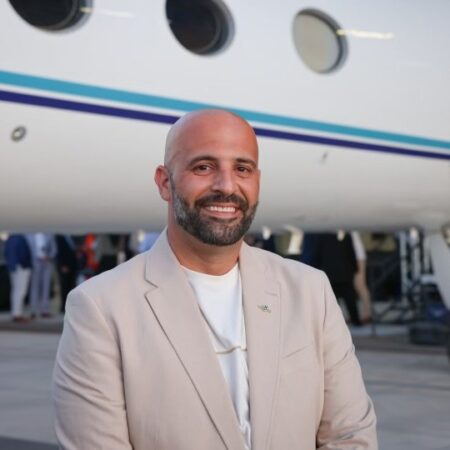What aviation experience do you have and how will this inform your role as Nexus CEO?
I have been in the aviation industry for the past 22 years. I have an MSc in Applied Aviation Science and a BA in Aeronautical Science from Embry-Riddle Aeronautics University in Florida, in the USA.
I also received an award of excellence in 1999 from the Saudi Attaché of Education (at the Saudi Arabian Cultural Mission (SACM)) in Washington DC and the Saudi Arabian Ministry of Higher Education (MOHE), and I hold an FAA commercial pilot’s license with instrument, airplane single engine land, and airplane multi-engine land ratings.
I started two airlines from scratch in Saudi Arabia – one of which is Flynas, the country’s first and only budget airline; the other was an all business class service airline. I was the CEO of Maz Aviation Consultants, a Nexus partner, and also served as president and CEO of Masarat Aviation Consulting (MAC), where I built up a global aviation consulting company offering a range of technical and management consulting services.
Nexus is rapidly growing internationally and we’re trying to make sure that we have the required infrastructure in place to manage the growth. The company started in 2010 and today is recognized globally as an international provider of flight operations services to private aircraft owners and corporate organizations. My role as the president and CEO is to ensure that we are geared for this expansion and growth, and to manage it properly, making sure we are creating success stories everywhere we go and keeping our bottom line positive.
How do you plan to grow the company further?
We currently have big operations in India, Africa, Europe and the USA. We are now serving the Middle East market and the Indian subcontinent, and soon we will be serving the southeast Asian market through the Nexus Philippines company. In terms of human resources, we are expecting our manpower to more than double in 2016 – we currently have 230 employees and expect this to grow to 500 employees next year.
What will be the biggest challenge?
The biggest challenge for me will be managing the growth over the next few years and making sure we have control over all of our expenses and costs. We need to make sure that all of our subsidiaries are standing on their own two feet without expecting any funding from the holding company by the end of 2016 or early 2017.
How do you ensure your technology is ready to meet future growth?
The strategy we have adopted and will continue to adopt is to employ the best technologies in all areas of the business. In terms of software for our flight operations centers all over the world, we’re using the best software that can serve us and help us serve our clients. It is a very sophisticated flight operations management system that will help us become fully paperless. It means we can manage all of our clients worldwide, whether they’re private aircraft owners or corporate clients, very smoothly.
January 4, 2016




